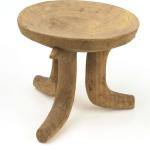
Yesterday I went down to the Friendship Room to visit with Molly.
I brought my daughter Rose, and Rose brought a wool hat and a bag of Tootsie rolls she’d picked out at the dollar store, to give to “our friends at the Warming Center.” She never likes to visit empty-handed. Molly’s husband Bill showed her how to arrange the hat and candy on the porch, for the poor people to take away. Then Rose goose-stepped around the porch in her best imitation of Darth Vader, and Molly and I started chatting.
Molly had just gotten back from a meeting; she was hungry, because she hadn’t gotten a chance to eat the meal served at the meeting. She’d been too busy talking and answering questions. Now she wanted some toast, but nobody had donated butter to the Friendship Room, so there was nothing to spread on toast.
The topic of the meeting had been the town’s prostitutes, young girls addicted to heroin.
I say “girls,” because a lot of them aren’t grown women. They’re young, and they’re helpless. Many of them were sold to pimps when they were children. The pimps put them on heroin, and now they can’t get off. Heroin is not an addiction you can beat by willpower; you need rehab to beat it, but there’s no rehab in this whole county.
This is slavery, plain and simple, happening right here in the United States under everyone’s noses. Human girls, bought and sold by masters who pimp them out for sex and keep them prisoner with drugs, and there’s no rehab facility so they have no way of getting free.
And what happens if the police get involved? Molly explained that, too. These girls are, on paper, criminals. Never mind that they have no choice, and that there’s nowhere for them to go. Once you have prostitution on your record, you can’t get government assistance. You can’t get a college loan or housing assistance, even if you could get away from your pimp and off heroin, which you can’t.
Johns drive downtown and pick up the prostitutes in their cars, sometimes in the commercial vans from their jobs. They have their fun, and they drop the prostitutes on Molly’s doorstep when they finish. There’s not much she can do, but she does what she can.
These girls aren’t going to live much longer, and they know it.
Everyone knows it.
I listened to Molly as she told me these things; I promised to come again soon. I went back to my house, and I played with my daughter, and I prayed.
These things are happening.
They’re happening in my dark and lonely corner of the fallen earth, here in the Ohio Valley, but they’re happening in your town too. It happens everywhere. Where there are vulnerable people, where there are poor people, there is slavery. Always. And where there are Christians, we have the duty to unbind captives. But the way to do it is not always clear. Molly does what she can by feeding these women, giving them a place to sleep, talking to City Council to try to make things change, consoling the others when one of them inevitably dies. I do what I can, poorly, by writing and getting the word out, visiting Molly, bringing sticks of butter and wool hats, and trying to raise my daughter to see these people as human beings. We all have to do what we can.
These things are happening. Woe to them through whom they happen, and woe to us if we remain silent and do nothing. Even if all we can do is spread the word and pray, bring a wool hat, and raise our children to see these people as human beings.
The next day, I returned to the Friendship Room with a few sticks of butter from our fridge. Molly took them gratefully. She said that she was on her way to the hospital to visit a mother and baby. The baby was born last night, weighing four pounds, addicted to heroin and cocaine. The mother had gone into labor while being arrested at a police raid.
These things are happening.
(image via Pixabay)

















